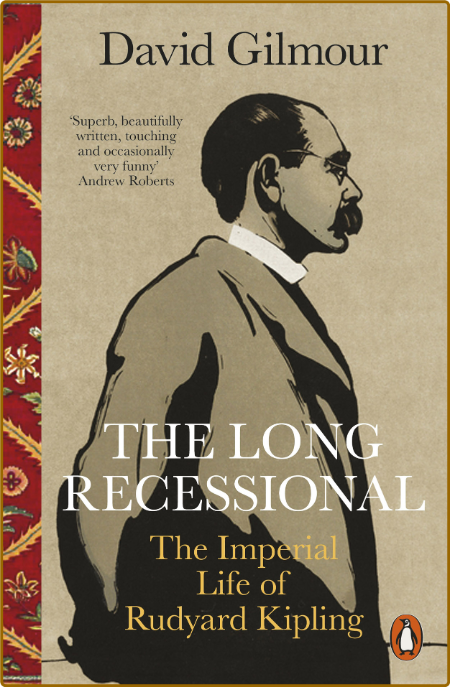 The Long Recessional The Imperial Life of Rudyard Kipling by David Gilmour
The Long Recessional The Imperial Life of Rudyard Kipling by David Gilmour
Lun Abr 11, 2022 2:04 pm

[/center]
epub | 9.75 MB | English | Isbn: B009SJD4Q6 | Author: David Gilmour | Year: 2003
[/center]
Description:
A major new biography of Rudyard Kipling Rudyard Kipling (1865-1936) was a unique figure in British history, a great writer as well as an imperial icon whose life trajectory matched that of the British Empire from its zenith to its final decades. Kipling was in his early twenties when his first stories about Anglo-Indian life vaulted him into celebrity. He went on to be awarded the Nobel Prize, and to add more phrases to the language than any man since Shakespeare, but his conservative views and advocacy of imperialism damaged his critical reputation -- while at the same time making him all the more popular with a general readership. By the time he died, the man who incarnated an era for millions was almost forgotten, and new generations must come to terms in their own way with his enduring but mysterious powers. Previous works on Kipling have focused exclusively on his writing and on his domestic life. Here, the distinguished biographer David Gilmour not only explains how and why Kipling wrote, but also explores the themes of his complicated life, his ideas, his relationships, and his views on the Empire and the future. Gilmour is the first writer to explore Kipling's public role, his influence on the way Britons saw themselves and their Empire. His fascinating new book, based on extensive research (especially in the underexplored archives of the United States), is a groundbreaking study of a great and misunderstood writer. **
From Library Journal
The events of September 11 and the war in Afghanistan have again brought attention to Kipling and the themes of imperialism, postcolonialism, and the role of the West in the Middle East. While essentially a Victorian in his values and art, Kipling died in 1936 on the eve of World War II, opposed to fascism and prophesying that the end of the British Empire would bring sectarian strife. During his life he witnessed the pinnacle and decline of the British Empire. While a spokesman for empire, Kipling was always cognizant of the complexity of the "white man's burden." Gilmour, who has written books on the politics of Spain and Lebanon, as well as a biography of Italian novelist Giuseppe di Lampedusa, offers a brief, sympathetic, well-informed, and highly readable account of Kipling. He focuses on Kipling's complex relation to empire, especially as expressed in his stories and poetry. His effort joins Harry Ricketts's recent popular, and more general, Rudyard Kipling. Highly recommended. Thomas L. Cooksey, Armstrong Atlantic State Univ., Savannah, GA
Copyright 2002 Cahners Business Information, Inc.
From Booklist
Starred Review For 50 years, Rudyard Kipling projected his political and social views in prose fiction and, more pointedly, in verse. He was a British imperial propagandist but also an artist who took no orders. As Gilmour presents him in a biography focused on his political life, but that cites and evaluates numerous poems and stories, noting their aesthetic qualities as well as their messages, Kipling was the greatest, because he was the most humane, British imperialist and also the empire's great, pessimistic prophet. His early working years in India convinced him that British rule there had to be paternal: guiding but not dominating, helping but not exploiting native peoples. The British in South Africa had similar duties, he thought, and needed also to restrain the Boers, whom he warned would establish a racist regime: apartheid. He despised liberals and socialists because he believed they would dismantle the empire, leaving India to be torn asunder by contending Hindus and Muslims--another accurate forecast. He undermined his own effectiveness with his ideological purity and permanent grudges. Still, as Gilmour makes abundantly clear, he was a major player in the affairs of the mightiest power on Earth, which lost its potency in tandem with his loss of practical influence. A remarkable man, a remarkable book. Ray Olson
CopyrightAmerican Library Association. All rights reserved
Category:Historical Irish Biographies, Historical India & South Asia Biographies, British & Irish Literary Criticism
Download from RapidGator
Download from DDownload
https://rapidgator.net/file/9ba23f61df7596d5842f1b466689e01c/
[/center]
https://ddownload.com/3c127eiy1n1k
Permisos de este foro:
No puedes responder a temas en este foro.


